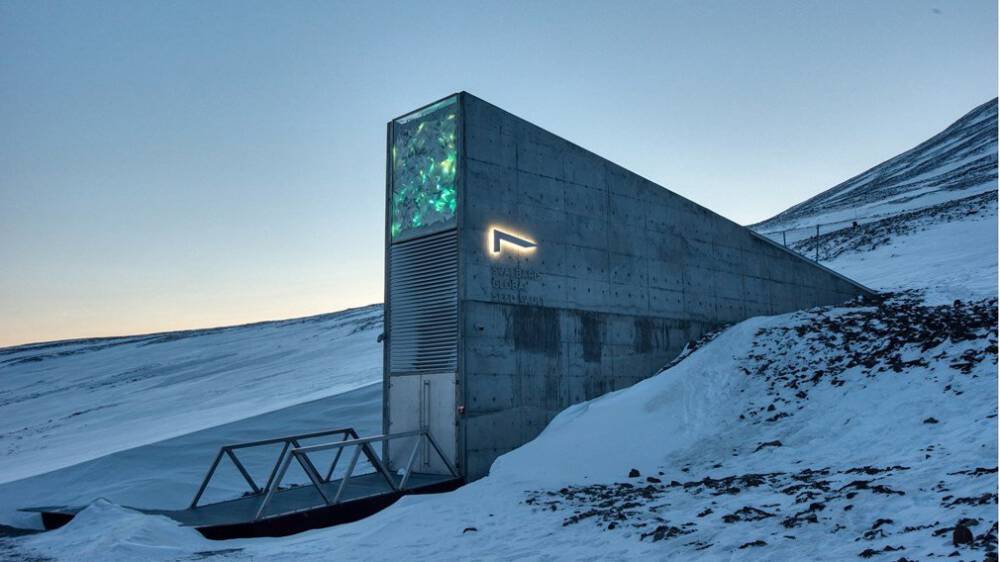22 new seed samples from 000 gene banks in Australia, New Zealand, Africa, the Middle East and Europe will be added to the seed bank. Reception of seeds will take place on Monday, February 10 at 14:11.
Both Agriculture and Food Minister Sandra Borch and Development Minister Anne Beathe Tvinnereim will be present at Svalbard. Representatives of Norwegian partners, Stefan Schmitz, president of the Crop Trust and Lise Lykke Steffensen, president of NordGen, will also be present. Representatives of the Slovak Research Institute for Plant Production are also participating.
The world's largest seed collection
The Seed Vault secures over 1,1 million seed samples of nearly 6000 plant species that are important for food and agriculture around the world. 89 gene banks around the world sent seeds to Svalbard. The global seed warehouse in Svalbard is the largest and most diverse seed collection in the world.
- The many different plants in the seed bank are also important to Norwegian agriculture, says Minister for Agriculture and Food Sandra Borch. To ensure increased food production in Norway, we need new plant varieties adapted to the climate and plants. They can also contribute to the improvement of the climate - friendly production.
Increases global food security
In a time when at least 811 million people do not know whether they will get the food they need every day, the importance of seed banks cannot be underestimated. Ensuring that local seeds are both preserved and used is critical to local food production. Every time we send new seeds to the Svalbard seed vault, global food security increases in the future, says Development Aid Minister Anne Beathe Tvinnereim.
- The fact that the seed collection, which was originally destroyed in Syria during the civil crisis, is being systematically rebuilt following the withdrawal of seeds from Svalbard's global seed treasury. This shows that the treasury functions as a safeguard for current and future food supplies and for local food security, Tvinnereim emphasizes.
The seed collection in Svalbard is growing. This time the collection is extended with 150 new species. Most of them are forage plants from the Australian Pastures Genebank in Australia. The German Institute of Plant Genetics and Plant Research in Leibniz (IPK) also has 50 species that were previously not in the treasury.
Rebuilds lost seed collections
About 6000 bags of seeds come from the Agricultural Research Center for Dry Areas (ICARDA). ICARDA collected seeds in 2015, 2017 and 2019 to rebuild a collection of seeds that were lost in Syria. Reconstruction works take place, among others in Lebanon and Morocco. Thanks to this shipment, ICARDA has around 100 seeds again. This is equivalent to what they stored before harvesting the seeds in the wake of the Syrian civil war.
Today Sudan is one of countries in the world most vulnerable to more and less drought predicted rainfall. At the same time, there is an extremely difficult political and humanitarian situation there. Therefore, it is particularly important that packaging containing, among others, be deposited in this round. millet and hops, sorghum from Sudan.
Nordic seeds in Svalbard
Ministers will help import seeds from the Nordic countries. Among them is one of the varieties of 'Svedjerug', which was secured at the last minute against loss. Svedjerug or Finnrug is a type of rye that Swedish farmers brought to forest areas in the eastern part of southern Norway several hundred years ago.
Timothy seed (Phleum alpinum), a rare species from Hardangervidda, is also included. Timothy mountain is an important relative of Timothy, which is our most important forage grass. Today it is used to revitalize areas after construction works in the mountains.
Ministers will also help to preserve chives (Allium fistulosum) seeds. It occurs naturally on grass roofs in several localities around Gudbrandsdalen, a food plant that has gained increasing interest in recent years.
A global seed bank in Svalbard was founded and owned by Norway. The operations are based on a partnership between the Ministry of Agriculture and Food, the Crop Trust and the Nordic Genetic Resource Center (NordGen).
Picture: Svalbard Global Seed Vault / Riccardo Gangale
Source: regjeringen
Read and learn more: Norway is one of the leading countries in Europe in terms of digitization



